Food & Lifestyle
Updated: June 8, 2022
Milk, Dairy or Not?
Cows Milk or Plant-Based Milk? There’s loads of options these days, so we’ve focused on a few favorites to help you make the right decision for you and your family.
Are plant-based milks, new?
The trend of plant-based milk may seem new, but the first soya dairy factory was set up in 1910, just outside of Paris. However, even earlier than soya was almond milk, thought to have been used in China during the 14th century. Since then and throughout the 20th and 21st century the evolution of plant-based milks has grown dramatically, to an industry worth more than $12 billion globally.

Whole Cows Milk
This classic contains almost every single nutrient that your body needs and is an excellent source of high-quality protein and different fats. The high level of calcium promotes higher bone density, while it’s also high in vitamin B12 and phosphorus.
However not all cows whole milk is made equal, you can get ‘grass-fed milk’, meaning the cows consumed organic grass and dried forages. Plus there is organic, A2, lactose free milk, and more.
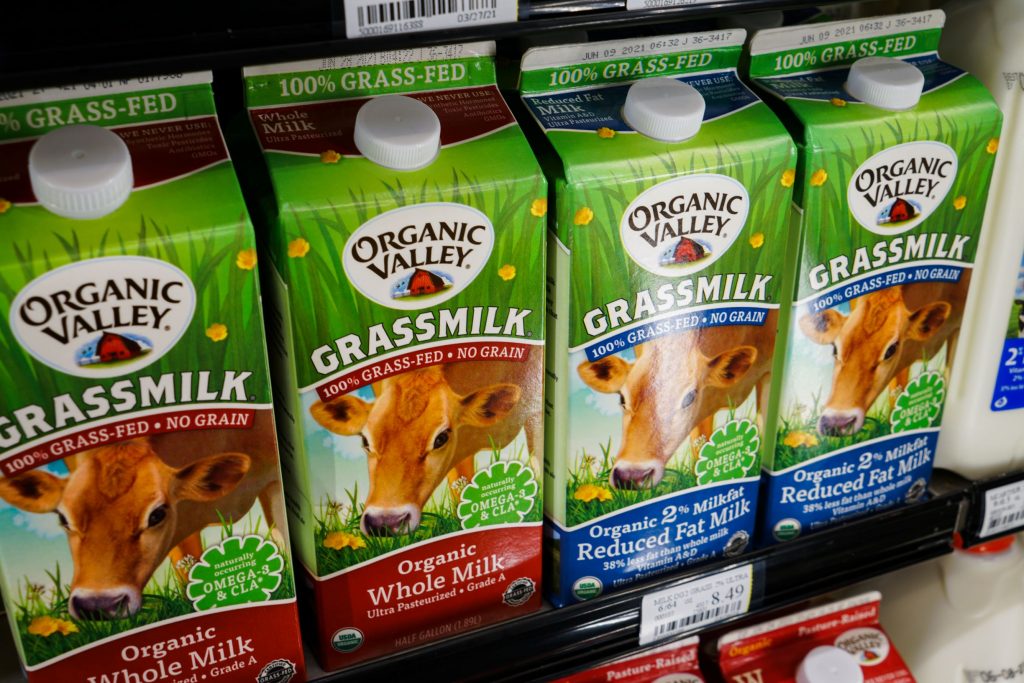
Flax Milk
Have an allergy or following a specific diet? Then Flax Milk could be for you! This superfood milk generally doesn’t contain nuts, dairy, soy, lactose or gluten and is plant-based, making it great for people following a vegetarian or vegan diet. It still contains a variety of nutrients including calcium and vitamin D, plus it has a neutral yet nutty flavor with a silky milk texture.
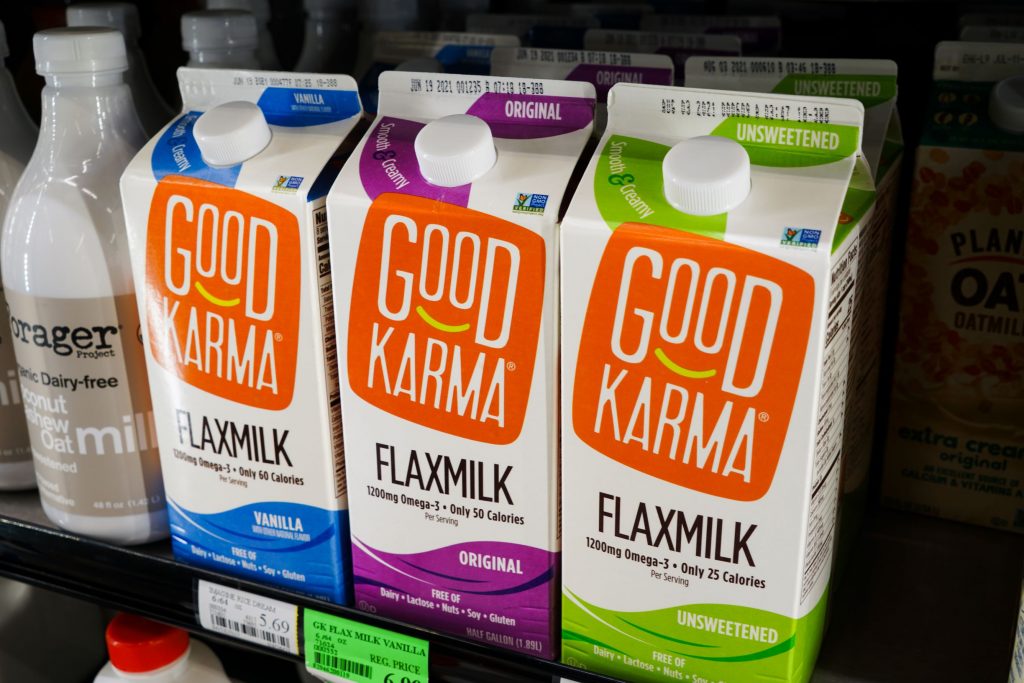
Soy Milk
Made from soybeans and filtered water, this plant-based milk generally contains as much protein as cow’s milk, yet is lower in calories. As it comes from a plant, it’s naturally free of cholesterol and low in saturated fat. Haven’t tried it? It has a mild and creamy flavor and is typically sweeter than other milk alternatives.
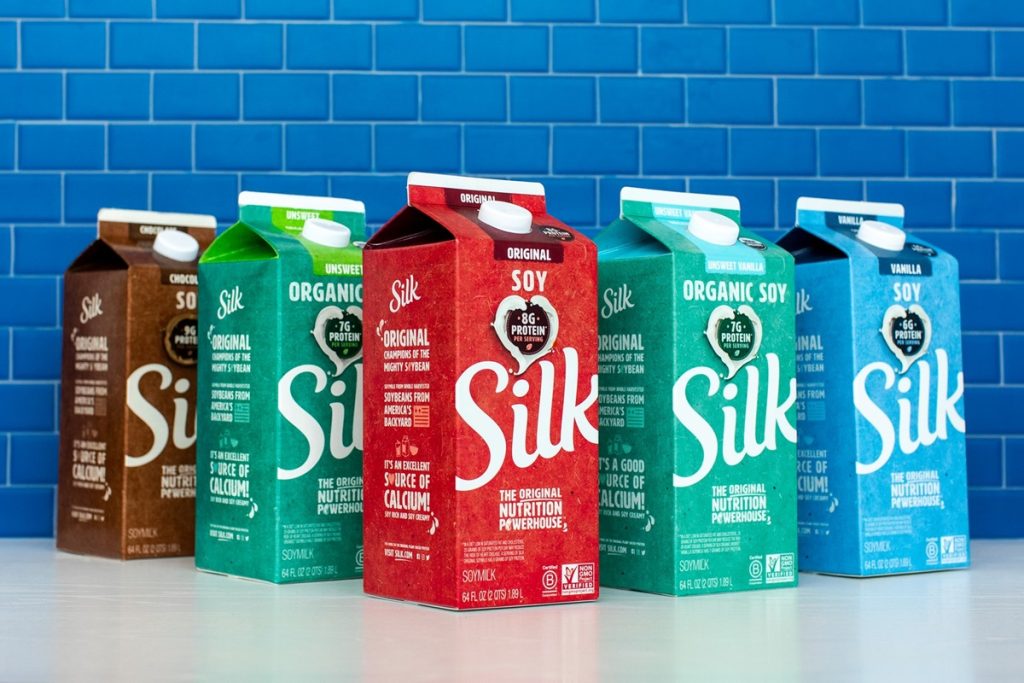
Almond Milk
Looking for a milk that’s lower in calories? Almond could be your new go-to, as long as it’s unsweetened! Made from ground almonds and filtered water, most almond milk products are vegan and all are naturally lactose-free. If the almond milk is unsweetened, it will have a nutty flavor and creamy texture, similar to cow’s milk. You can also get flavored almond milk varieties including vanilla and chocolate.
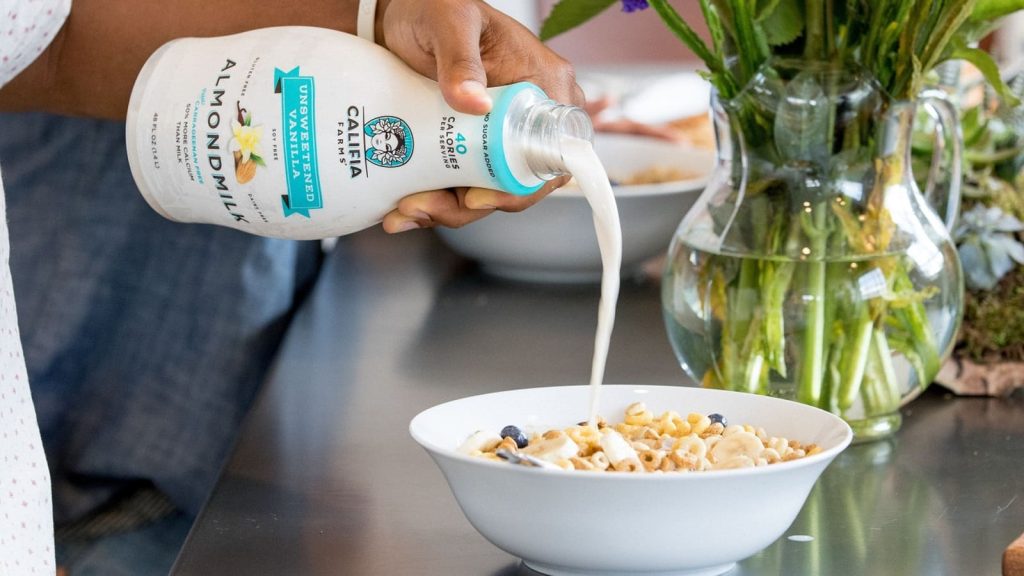
Oat Milk
This vegan-friendly milk substitute is a great choice for people with allergies or intolerances. It’s naturally free of lactose, nuts, soy and can also be made gluten-free. Often fortified with nutrients and vitamins like A, D, B2 and B12, offering heart and bone benefits. It does generally however provide less protein than soy and dairy varieties. The taste? Very similar to cows milk, but with a slightly oat-y aftertaste, it’s also often naturally sweeter than non-dairy milks.
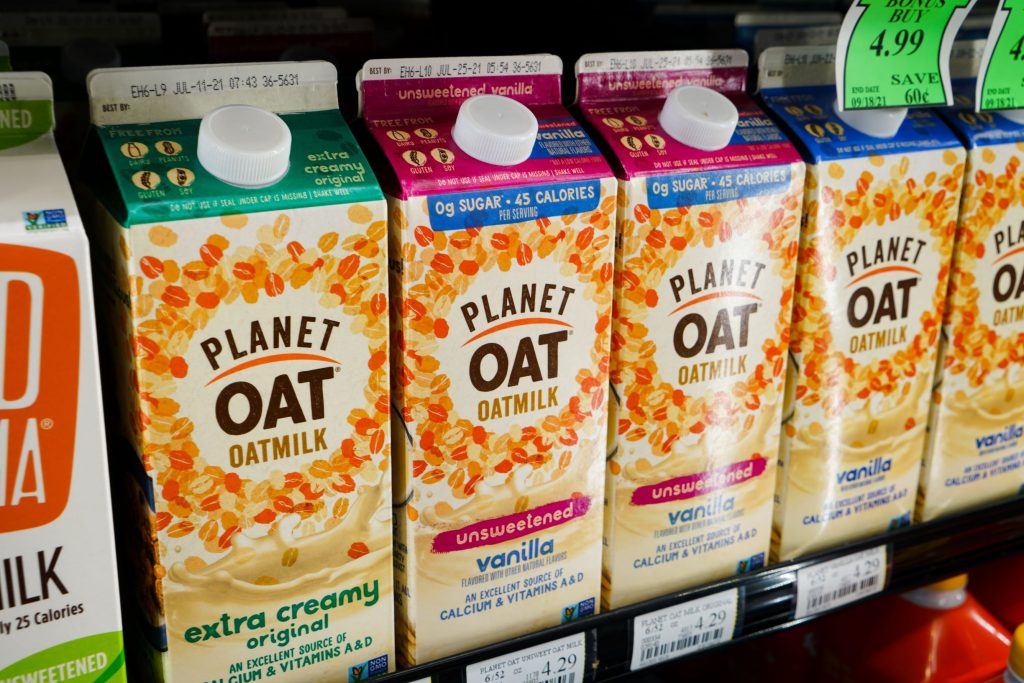
But, how are plant-based milks made?
Plant-based milks are made by soaking the main ingredient (bean, nut, seed, etc.) in water for several hours, then either grinding or blending it into a puree. The mixture is then filtered to separate the milk from the plant matter, followed by the milk being boiled to sterilize and add flavor. The final part of the process if the adding of any flavors, vitamins and minerals.
So, what’s your milk go-to?
Please consult your physician before starting or changing any diet.
